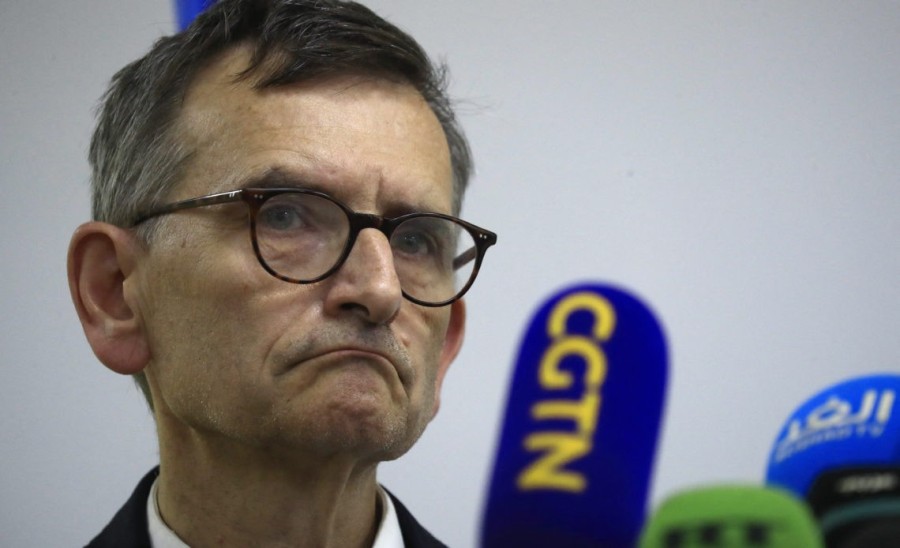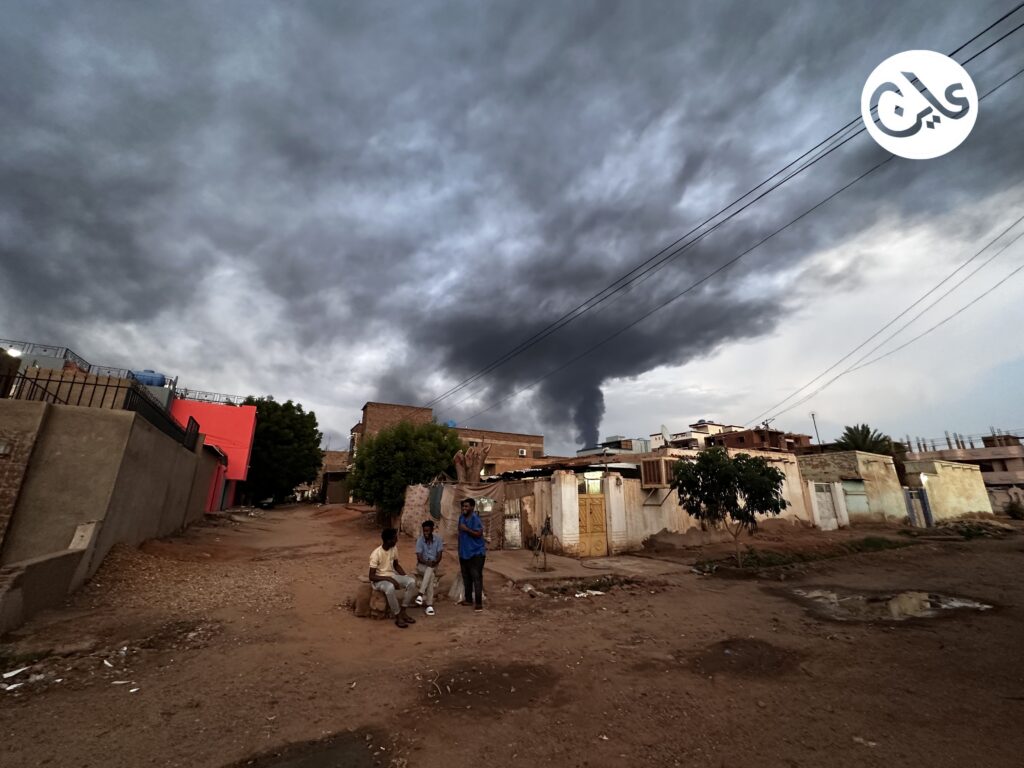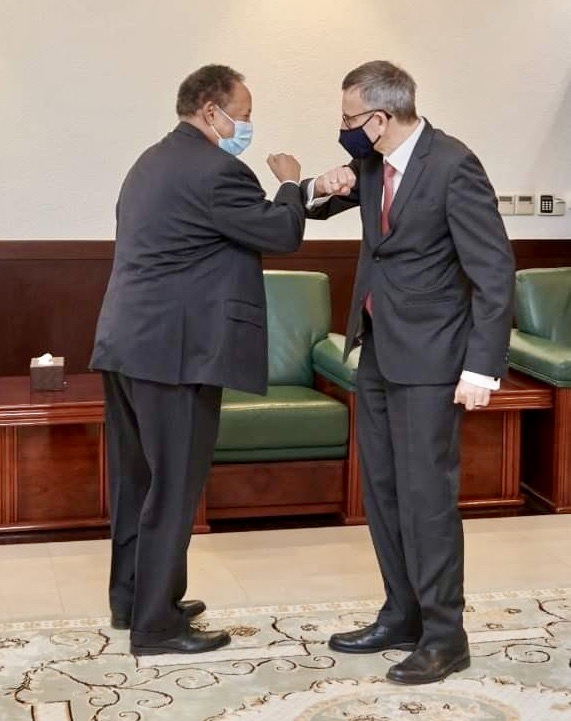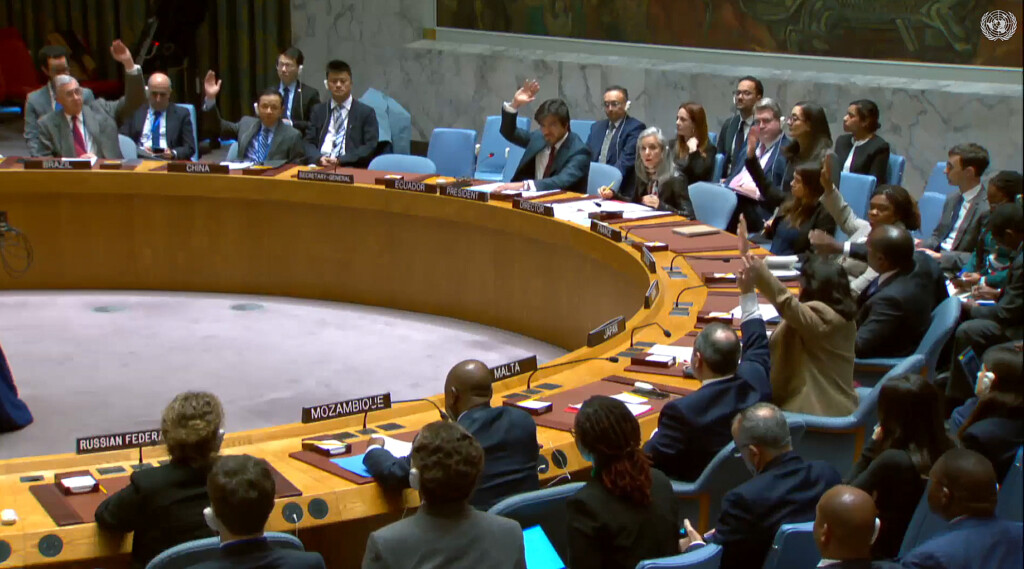The UN mission in Sudan ends as Jeddah peace talks end in deadlock
4 December 2023
The United Nations Integrated Transition Assistance Mission (UNITAMS) ended yesterday, following the vote of 14 members of the UN Security Council to end the UN mission at the request of the Sudanese government.
The government, which is tenuously controlled by the army, submitted a request to the Security Council in November to end the mission’s presence on Sudanese territory, claiming that there was no point in continuing it because its mission was linked to the transitional period.
The Undersecretary of the Sudanese Ministry of Foreign Affairs, Ambassador Daffallah al-Haj Ali, who headed the Sudanese delegation in New York, conveyed to the members of the Council in a meeting last Friday that the “Sudanese leadership” is ready to complete the transitional period, end the war, and hold elections.

Break with the international community
Former diplomat and analyst Omar Abdel-Rahman told Ayin that UNITAM’s exit was expected since the departure of its head, Volker Perthes, and the army’s opposition to any scrutiny by international organisations. “It is clear that the Sudanese government, led by army generals, is disturbed by the United Nations reports about violations against civilians,” Abdel-Rahman said. The former diplomat had worked in the United Arab Emirates foreign mission until he was removed after the October 2021 military coup. “In the latest United Nations report on violations against civilians during the war, the report confirmed that 258 civilians were killed by aerial bombardment by Sudanese army aircraft,” he added. “Perhaps this report was more disturbing to the generals.”
The former diplomat says the Undersecretary of the Ministry of Foreign Affairs, Ambassador Dafallah Al-Haj Ali, is known to belong to the former regime under the National Congress Party and was assigned to ensure UNITAM’s departure. Abdel Rahman believes that the current that dominates the decision-making process within Sudan’s army remains ambivalent towards foreign relations and is willing to return to global isolation as it was during the Bashir era.
“They do not care about the international community –they want power in a specific geographical area outside the war zones,” Abdel-Rahman added. “We may witness the formation of a government in those areas in the coming period, and these indicators have begun with the appointment of governors and some officials.”
Similarly, political analyst Mohamed Kamal believes that the decision within the government has been under the control of the “old guard” since the outbreak of the war and that Al-Burhan, the army commander, had no influence on the request to cancel the UN mission.
Both analysts believe the end of UNITAMS may trigger greater international scrutiny and backfire against the army and their influencers from the previous regime. “It is clear that the departure of UNITAMS does not bring good news for those who worked for its departure in Sudan, because the alternative will be direct international intervention to protect civilians as long as they refuse to make concessions in the peace talks at the Jeddah platform in Saudi Arabia,” Kamal added.

Since mid-April, a war of dominance between the army under Lt-Gen Abdel-Fattah al-Burhan and his former deputy, Lt.-Gen Mohamed Hamdan Dagalo, commander of the Rapid Support Forces (RSF). Hopes for a peaceful settlement between the army and RSF appear dashed as internationally brokered peace talks in Jeddah, Saudi Arabia, ended in deadlock today, suspended for an indefinite period.

Civil forces oppose UNITAMS exit
UNITAMS came at the request of the transitional government led by Abdullah Hamdok, who has publicly condemned the decision to terminate the UN mission, stressing the point that “there is no legitimate government today” in a position to request the UN mission’s departure. “The mission’s presence has become more urgent since the outbreak of war,” Hamdok posted on X (formerly Twitter) last month.
The former premier’s stance is in tandem with that of Human Rights Watch (HRW) researcher Mohamed Osman. “The need for robust protection of civilians is greater than ever,” writes Osman. “The UN should be actively working to fulfill its responsibilities to protect civilians in Darfur and other parts of Sudan, not walking away.”
While UNITAMS departs, Algerian diplomat Ramtane Lamamra will assume his mission as an envoy of the Secretary-General of the United Nations. “But Lamamra is just one person,” Osman wrote in an op-ed. “It is unclear what kind of staff he will have and to what extent he will be able to publicly report to UN member states on human rights abuses and war crimes.”


